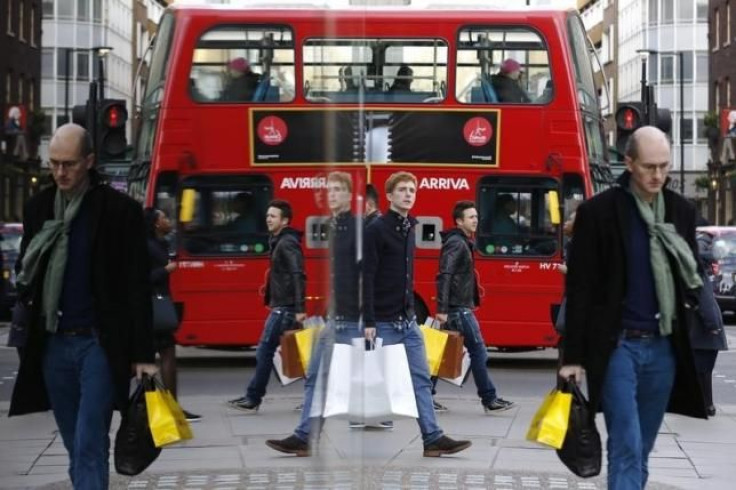UK Inflation Negative For First Time Since 1960, Pulled Down By Early Easter

Britain's annual rate of consumer price inflation fell below zero for the first time since the 1960s, official figures showed on Tuesday, pushed down by lower travel costs due to an early Easter.
The Office for National Statistics said consumer prices fell 0.1 percent in April compared with the same month last year.
Economists taking part in a Reuters poll had expected the consumer price index to remain at zero.
It was the first time that the CPI came in negative since official records for the index began in 1996. Based on comparable estimates going back further, it was the first time that consumer prices showed deflation since 1960, the ONS said.
In monthly terms, prices rose 0.2 percent, the ONS said.
Bank of England Governor Mark Carney said last week that the central bank thought inflation could turn negative imminently, although he reiterated that prices would pick up in the coming months and interest rates were more likely to move up than down.
April's reading leaves inflation well below the BoE's 2 percent target, but for now few economists think Britain is at risk of Japanese-style entrenched price falls.
The wages of workers in Britain have picked up in recent months and figures due to be published on Thursday are expected show that retail sales rose by nearly 4 percent in April compared with the same month last year.
The CPI in April was pushed down by cheaper air and sea fares which the ONS linked to the Easter holidays -- when prices are usually higher -- which this year fell outside the collection period for the April reading of the index.
Last year, Easter fell in the middle of the collection period, meaning the higher fares pushed up the index.
The sharp fall in inflation around the world has been driven by the slump in global oil prices which took place last year, as well as falls in food prices.
The ONS said food prices had fallen about 3 percent in annual terms in each of the last four months, an unprecedented run of such large declines.
But an underlying measure of inflation, which strips out increases in energy, food, alcohol and tobacco, fell in April to its lowest yearly level since March 2001 at 0.8 percent.
Data also released by the ONS on Tuesday showed that factory gate prices fell by 1.7 percent in annual terms, a touch weaker than economists' predictions of a 1.6 percent fall.
House prices across Britain rose by 9.6 percent in the 12 months to March, picking up a bit of speed from an increase of 7.4 percent in February, the data showed.
Other measures of British house prices have also shown an acceleration in recent months after slowing for much of 2014.
Prices in London rose 11.2 percent, the ONS said.
© Copyright IBTimes 2024. All rights reserved.











